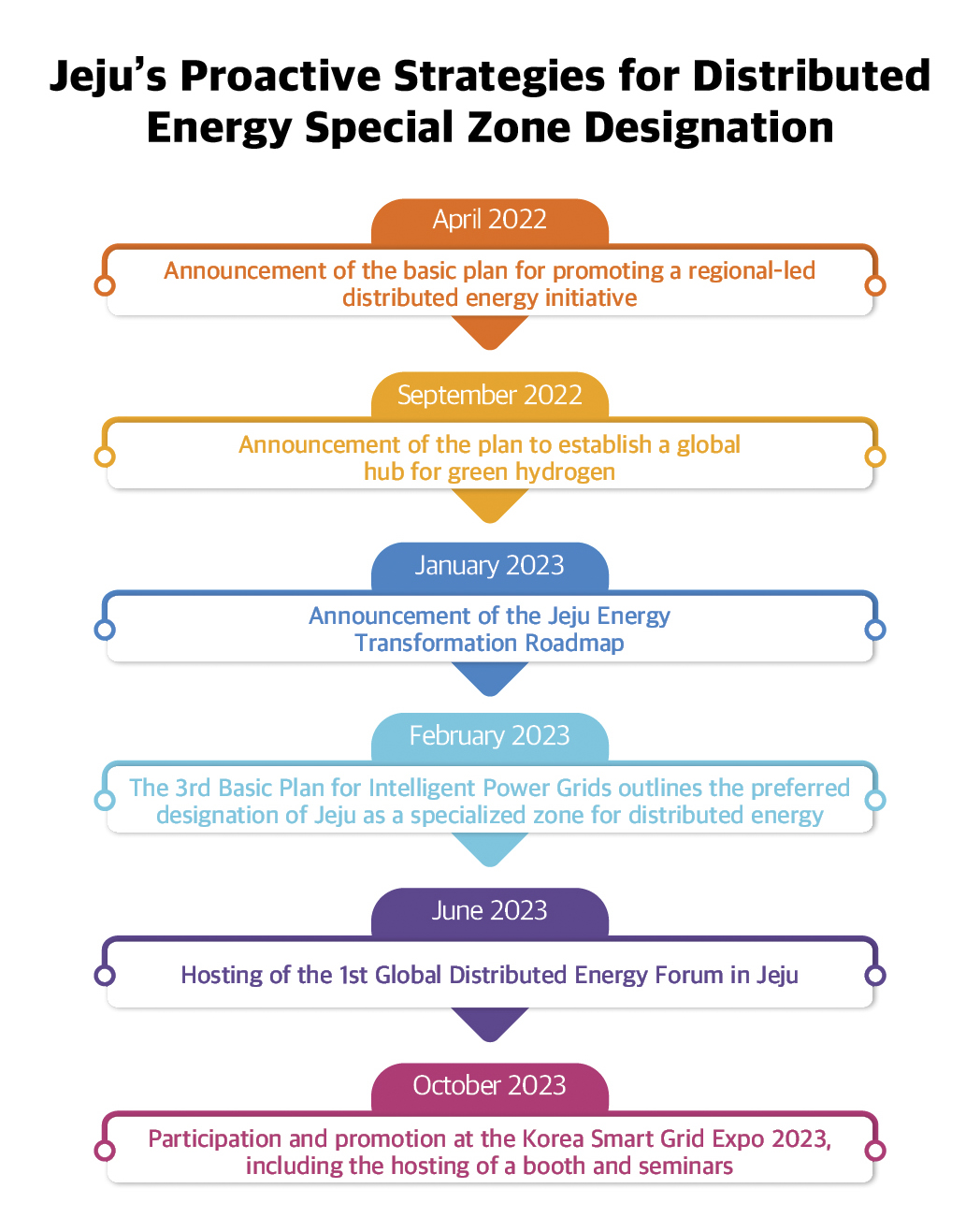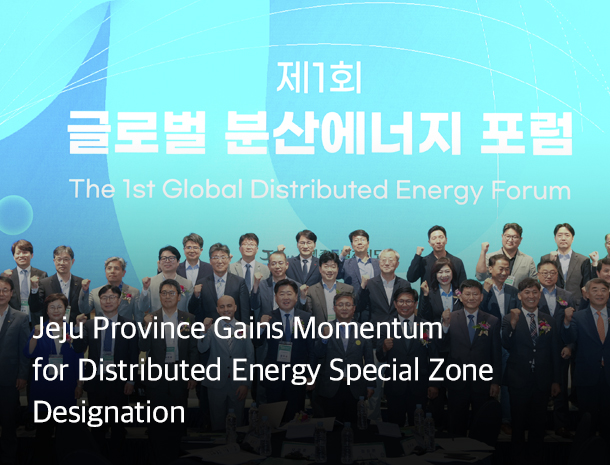Industry News
- Home
- Jeju Life
- Industry News
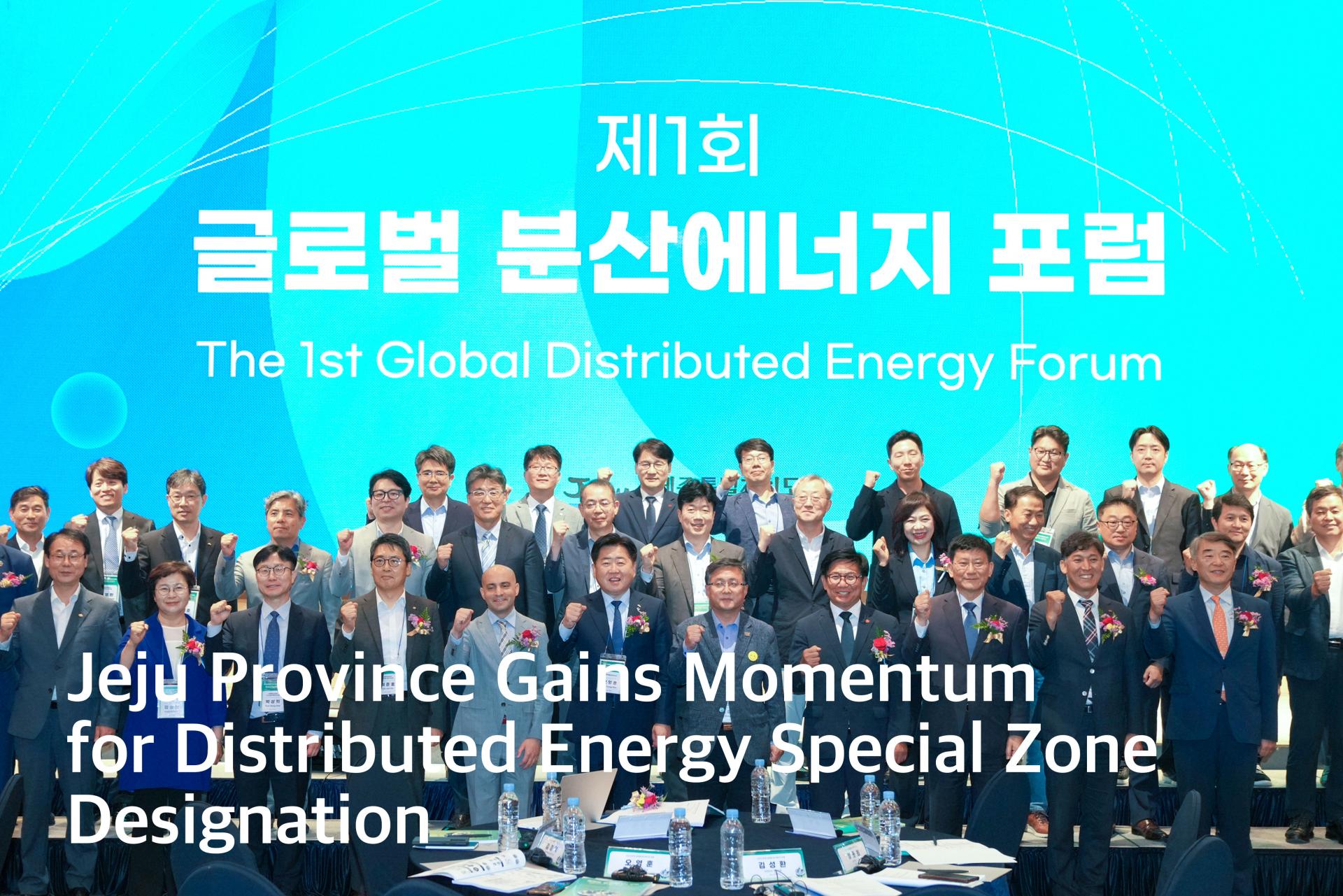
Jeju Special Self-Governing Province is actively pursuing the title of Korea's first specializedzone for distributed energy. In a bid to secure this designation, Jeju hosted the 1st Global Distributed Energy Forum, marking the initiation of efforts toward becoming a distributed energy special zone. Aligned with the nationwide introduction of the Renewable Energy Bidding and Real-time Market System from February 2024, Jeju aims to alleviate output control challenges within the province and establish a foundation for fostering new energy growth through its designation as a distributed energy special zone.
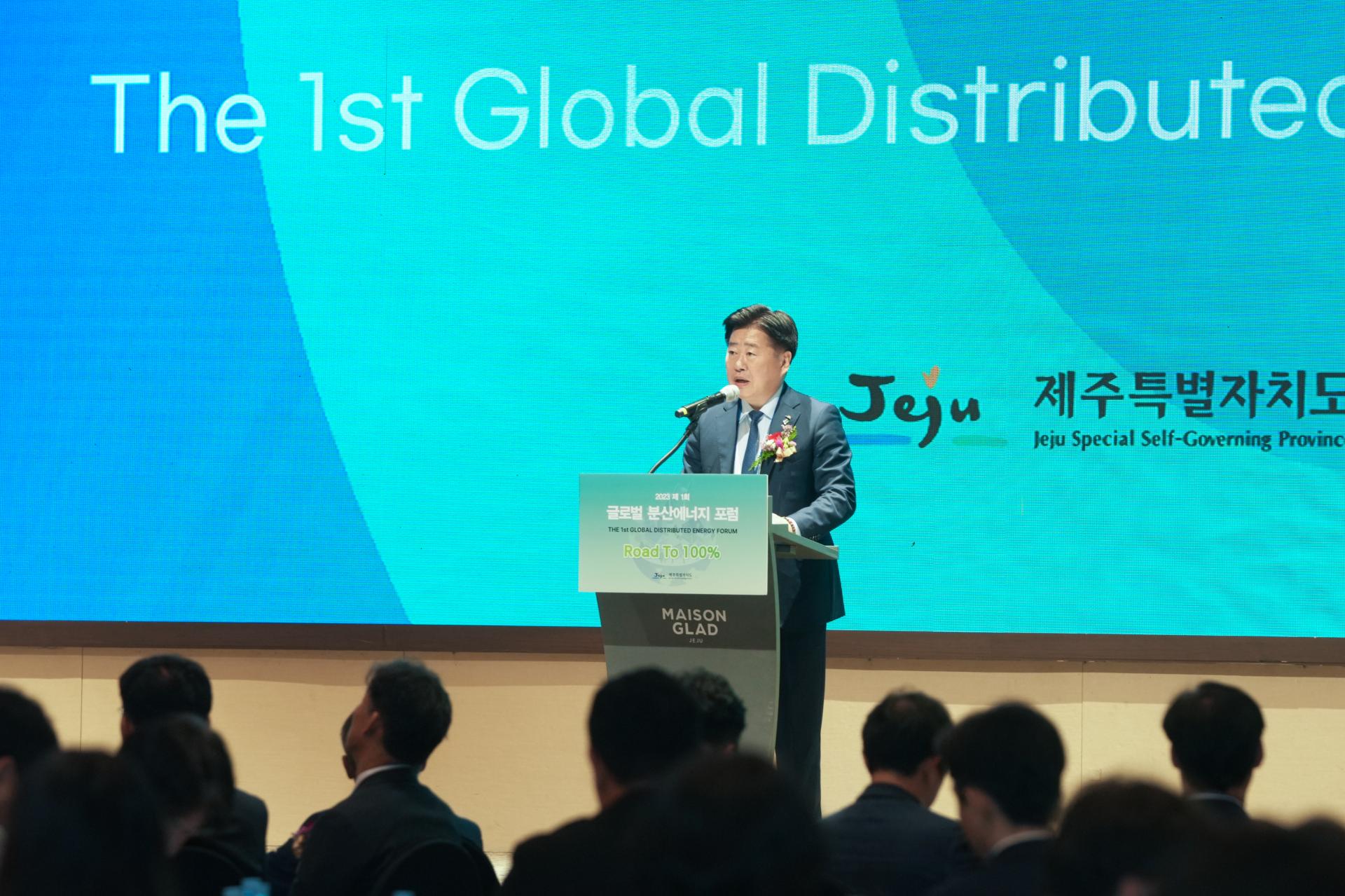
Jeju Governor Oh Young-hoon Presented at the 1st Global Distributed Energy Forum in Jeju
Exploring Changes and Promoting the Distributed Energy Industry in Jeju
The 1st Global Distributed Energy Forum aimed to spotlight changes and discuss promotion strategies in the power industry, engaging companies related to distributed energy nationwide, including Jeju. This initiative followed the enactment of the Special Act on the Promotion of Distributed Energy on June 13, designed to overcome the limitations of the centralized power system and establish the basis for regional differential electricity rates.
The forum witnessed the participation of over 300 individuals, including Governor Oh Younghun, lawmaker Kim Sungwhan, Director Park Sanghee of the Innovative Energy Industry & Distributed Energy Division at the Ministry of Trade, Industry and Energy, Vice President Lee Junho of the Korea Electric Power Corporation, CEO Kim Youngmoon of Korea East-West Power, Professor Kim Heejip of Seoul National University, and Ali Izadi, Head of APAC Research at Bloomberg New Energy Finance.
In his opening remarks, Governor Oh declared, "Creating a distributed energy market and generating new added value for the people through the market are our upcoming tasks." He emphasized, "Jeju will be the first in South Korea to embark on the distributed energy transition," adding, "Jeju is confident that it is the ideal location to implement the promising and practical distributed energy policies for the designation as a Distributed Energy Special Zone. Jeju will accelerate the era of distributed energy in South Korea and grow distributed energy as a new driving force."
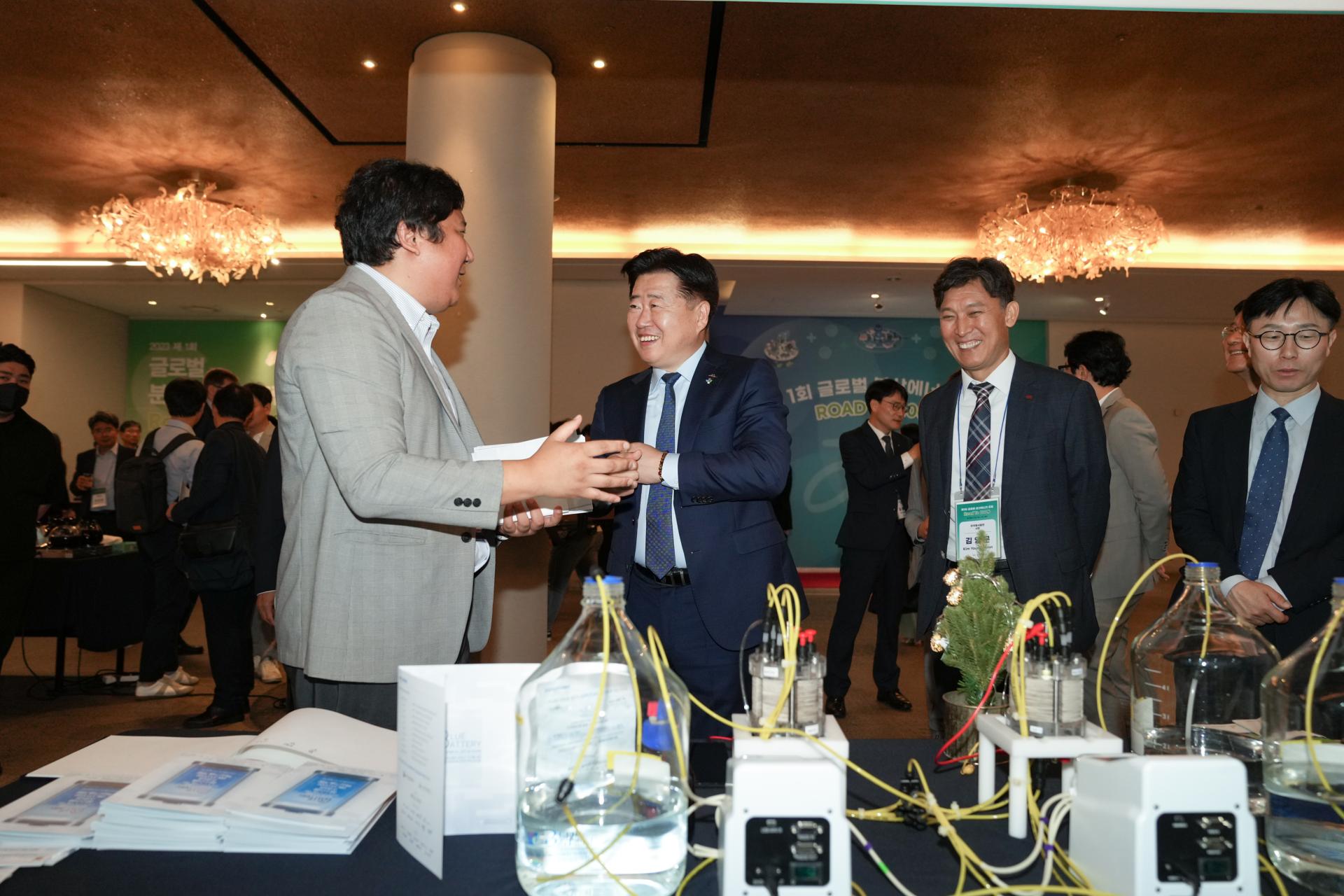
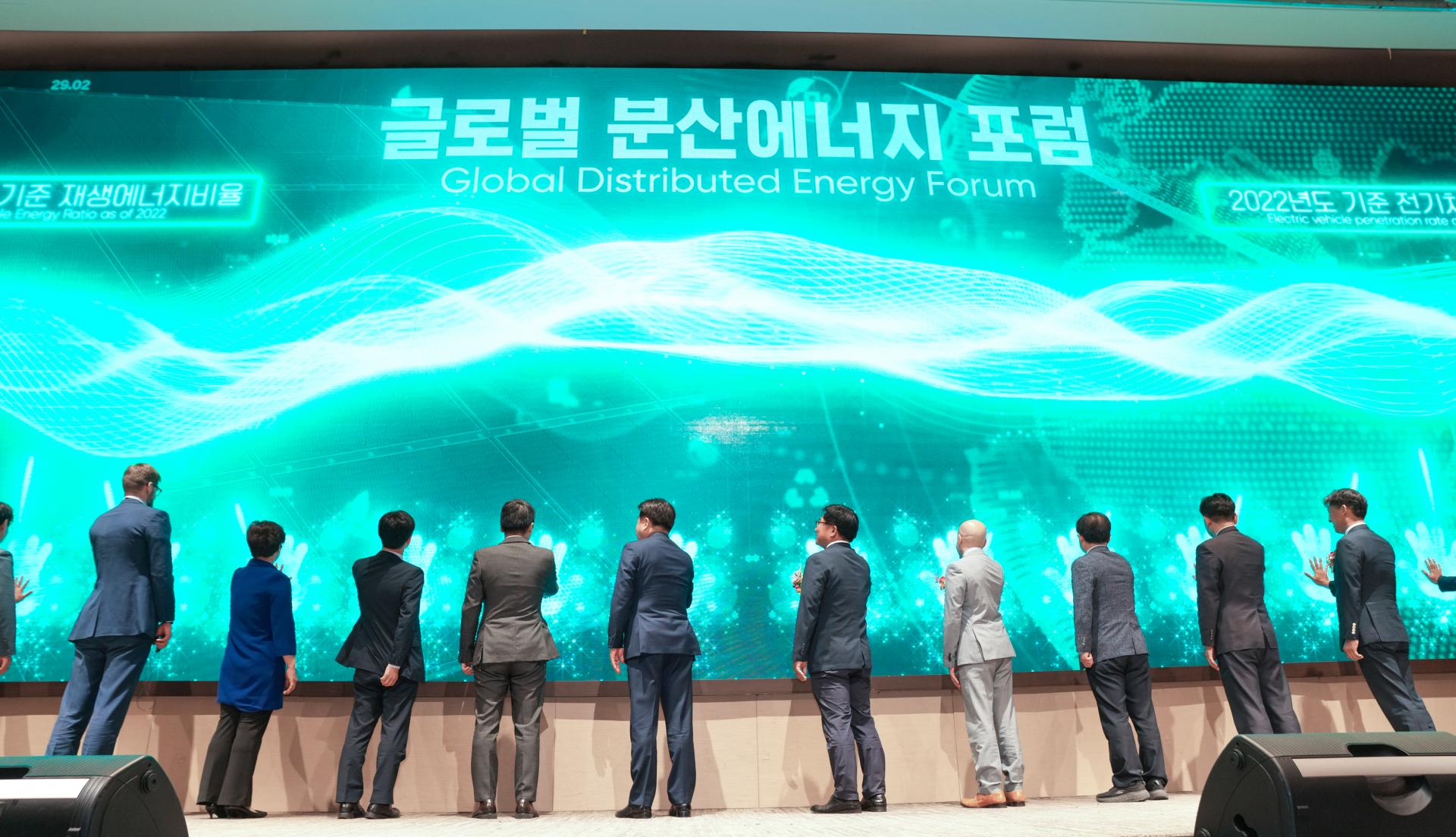
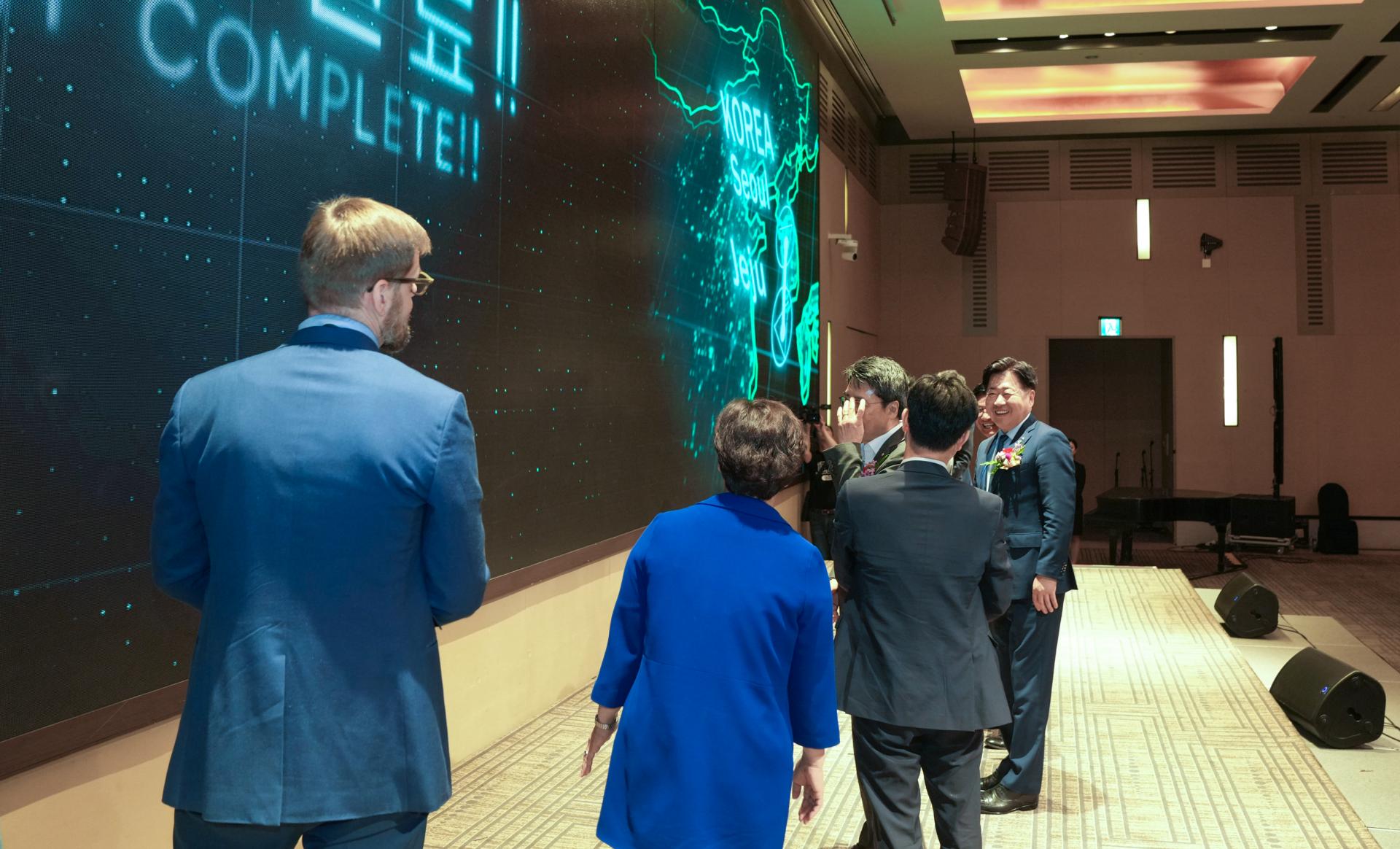
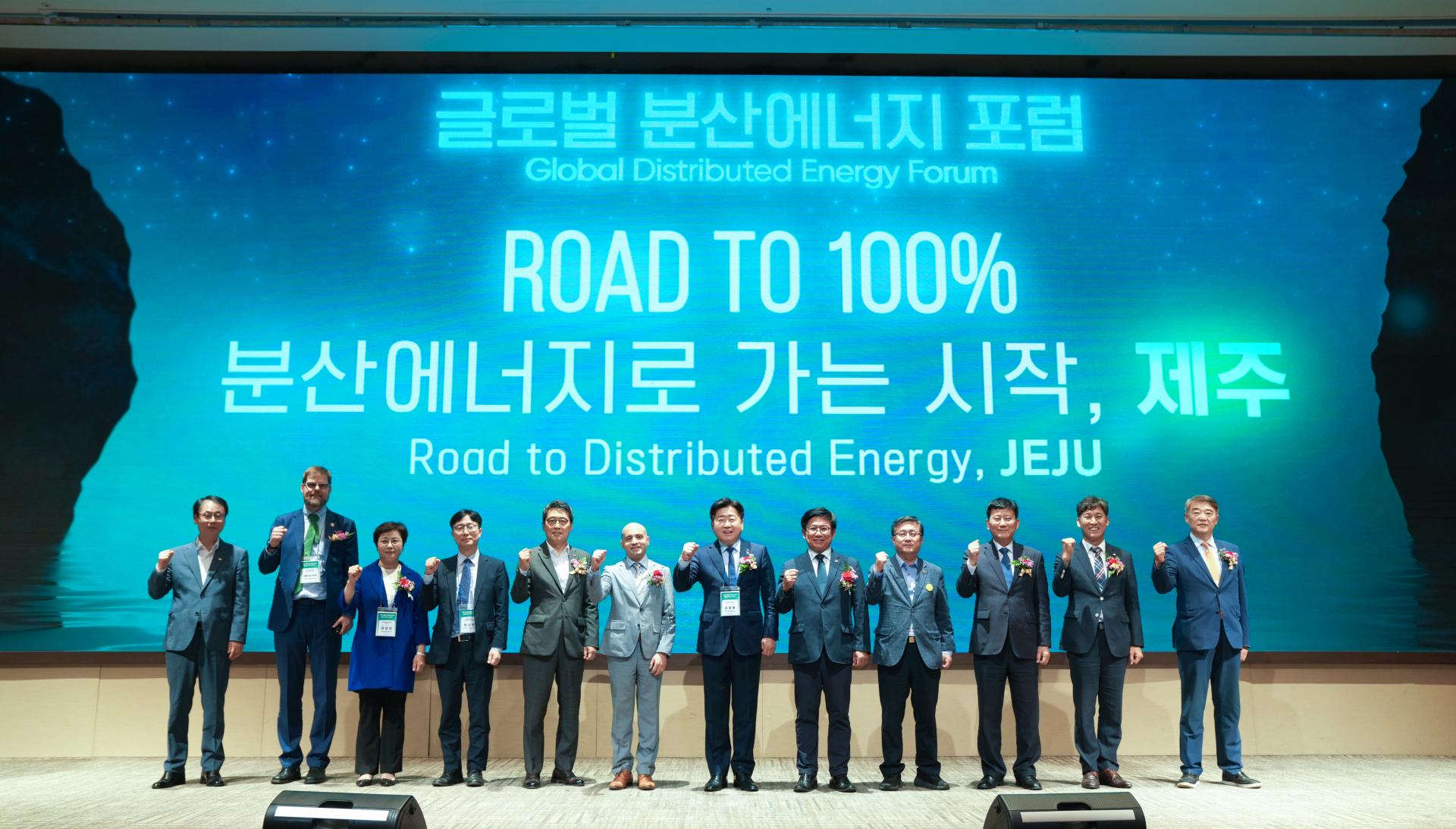
Jeju, an Ideal Location for a Distributed Energy Special Zone
The Special Act on the Promotion of Distributed Energy aims to expand the supply of distributed energy in designated areas (special zones) to support the improvement of regional power self-sufficiency. In these special zones, distributed energy operators can directly supply electricity to end-users, and engage in transactions with the electricity market and electricity sellers in cases of power shortages or surpluses. If Jeju is designated as a distributed energy special zone, it will have the flexibility to trade surplus electricity freely through intermediaries such as virtual power plants (VPP) and introduce flexible real-time tariff systems to boost power demand during output control periods.
Moreover, by aligning with sector coupling projects such as green hydrogen production and power-to-heat (P2H) conversion, Jeju aims to address power system instability issues and expects benefits such as job creation from the exploration of new industries, and improved resident convenience due to reduced electricity costs. Forum participants also underscored the imperative to address Jeju's output control challenges.Kim Sanghyup, Chairman of the Carbon Neutrality and Green Growth Commission, remarked, "While Jeju is leading the energy transformation, as a successful case of carbon neutrality in South Korea, recent issues such as output control in renewable energy and the shift to eco-friendly vehicles leading to a downturn in some industriespose challenges not only for Jeju but for all of us, and we need to work together to solve them." Jung Donghee, Chairman of the Korea Power Exchange, also stated, "The expansion of renewable energy is driving changes in Jeju's power system, and the traditional large-scale supply of electricity from thermal power plants is gradually transitioning to small-scale renewable energy. The changes in Jeju's power system, influenced by the island's characteristics and the distinct nature of renewable energy, are leading to issues such as output control, and as this situation is expected to gradually escalate even on the mainland, it presents a challenge that demands a collective solution for South Korea's journey towards carbon neutrality."
Jeju achieved a 19.2% renewable energy rate in 2022, surpassing the government's target of 21.6% by 2030 by 89%. In terms of electric vehicle adoption, the island also recorded an 8.05% penetration rate as of last year, exceeding the national average of 1.5% by over five times.
